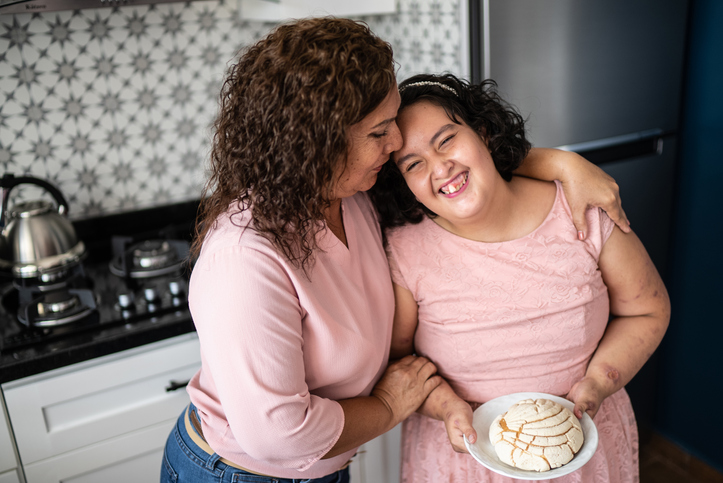Planning for the Care of Your Adult Child on the Spectrum
April 1, 2023

Today marks the start of National Autism Awareness Month. For parents who have children with autism spectrum disorder (or ASD), it is imperative that they begin to plan for their future now. The CDC recently reported that approximately 1 in 36 children in the U.S. is diagnosed with ASD. Though it’s not something anyone wants to think about, every family should prepare for the day they are no longer around to care for their loved ones, especially those with disabilities. The most important part of designing a care plan is to utilize the help of professionals who specialize in the care of special needs. Since the process can be overwhelming,
“It’s essential to work with specialists in this type of planning,” said AndrewKomarow, founder of Planning Across the Spectrum in Connecticut. When working with a specialist, parents should let them know what they want for the child, so that a specialist can tell them what is right for their situation.
Financial Planning
For many, the most intimidating portion of planning for the care of a special needs child is likely the financial aspect. People with disabilities usually qualify for Government services, such as Social Security Income (SSI), Social Security Disability Insurance (SSDI) and Medicaid, but sometimes that may not be enough. Many government services have income limitations, so it’s very important to set up supplemental income, such as personal funds and life insurance, properly in order to avoid the disqualification of government aid. A special needs, or supplemental needs, trust will hold the assets of a person with disabilities without costing them their government benefits; another financial option is an ABLE account, that allows savings up to $100,000 without losing government benefits.
To find a planning specialist that is trained in the care of those with special needs, parents may check the websites of the National Elder Law Foundation and Academy of Special Needs Planners.
Housing
When it comes to housing, “It’s more important to look at the individual,” Komarow said. “What interests and supports do they need?” Parents should think beyond their child living in the family home or with other family members. It’s important to consider how independently functioning they are and which communities will best serve their needs. In other words, instead of parents thinking about where they would like to retire, they should be looking at areas that their child can thrive in after they pass away.
There is a trend toward more community-based living, Gordon Homes with WestPoint Financial in Indianapolis points out. “State-administered Medicaid HCBS waiver programs allow people with disabilities to live in a house or apartment,” he said. A planning specialist will know about options such as these and be able to direct parents toward a solution they can be comfortable with, and their children, if able to, should always be brought into this conversation.
Designating a Care Team
How independently functioning a child with ASD is will determine what kind of care team needs to be put in place. A trustee will help to manage the trust on behalf of the child. They should be someone who is responsible, cares about the child, and will outlive the parents. A guardian or conservator would make all of the decisions regarding an individual’s financial and personal affairs. With a power of attorney, both they and the individual will be able to make decisions together. If able, the child should always be included in the decision-making process, because they should feel just as comfortable as their parents are with the designated care team.
Compiling Information for Caregivers
Marianne Ehlert of Protected Tomorrows, who works with families of people on the autism spectrum to plan for adult living, knows that, “Usually, parents or guardians of a teen understand what that child needs.” It will be important to determine whether or not a child will have the skills they need as a young adult to function independently, such as managing finances, scheduling care appointments, managing personal hygiene, and maintaining the shopping, cooking, and cleaning at home. This will also help determine what sort of living conditions they will need. Will they live with family, alone with minimal support, or will they need to live at a full-time care facility? A statement or letter of wishes, though not a legally-binding document, will serve as a guide for those who will care for your child. It should include all of the child’s care instructions, including medical needs, financial benefits, residential arrangements, and even daily routines.
Planning While Your Child is Still Young
When planning happens early, parents can learn about beneficial programs that their child may be eligible for, oftentimes at their own school. A child’s education can actually be designed to support their plans for the future. Special Needs Planning expert Phillip Clark points out that many planning processes focus on the care of the child once the parents are gone, but planning should be focussed on the child thriving both in the future and now. In order to succeed in the future, children need support now that will help them achieve all of their goals. Families should envision what they want for their child and then determine what needs to be done in order to make that happen.
Not only can planning provide caregivers with priceless peace of mind, but it can also lead to the discovery of resources that will help children with ASD flourish now. Since the planning process can be long, Insureyouknow.org can help parents stay organized by storing all of their documents in one place, such as financial information, medical records, and detailed care instructions.
